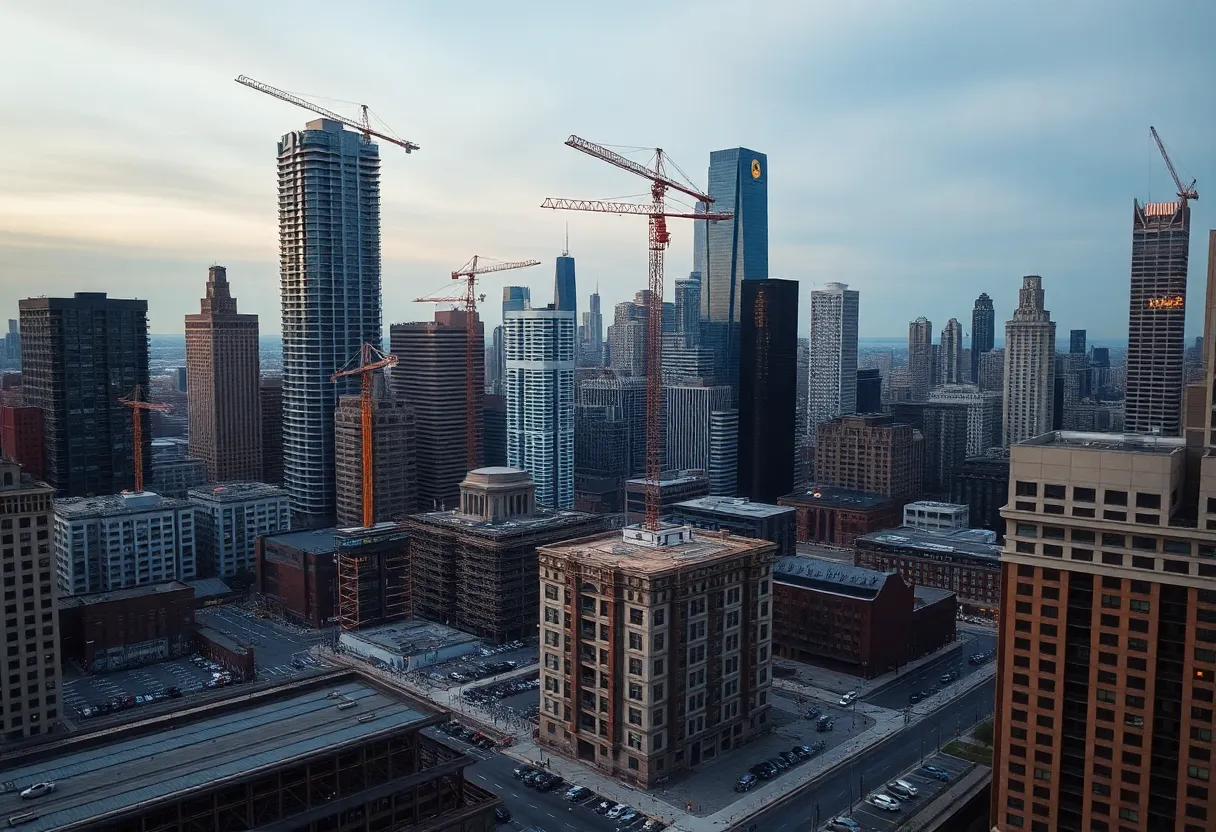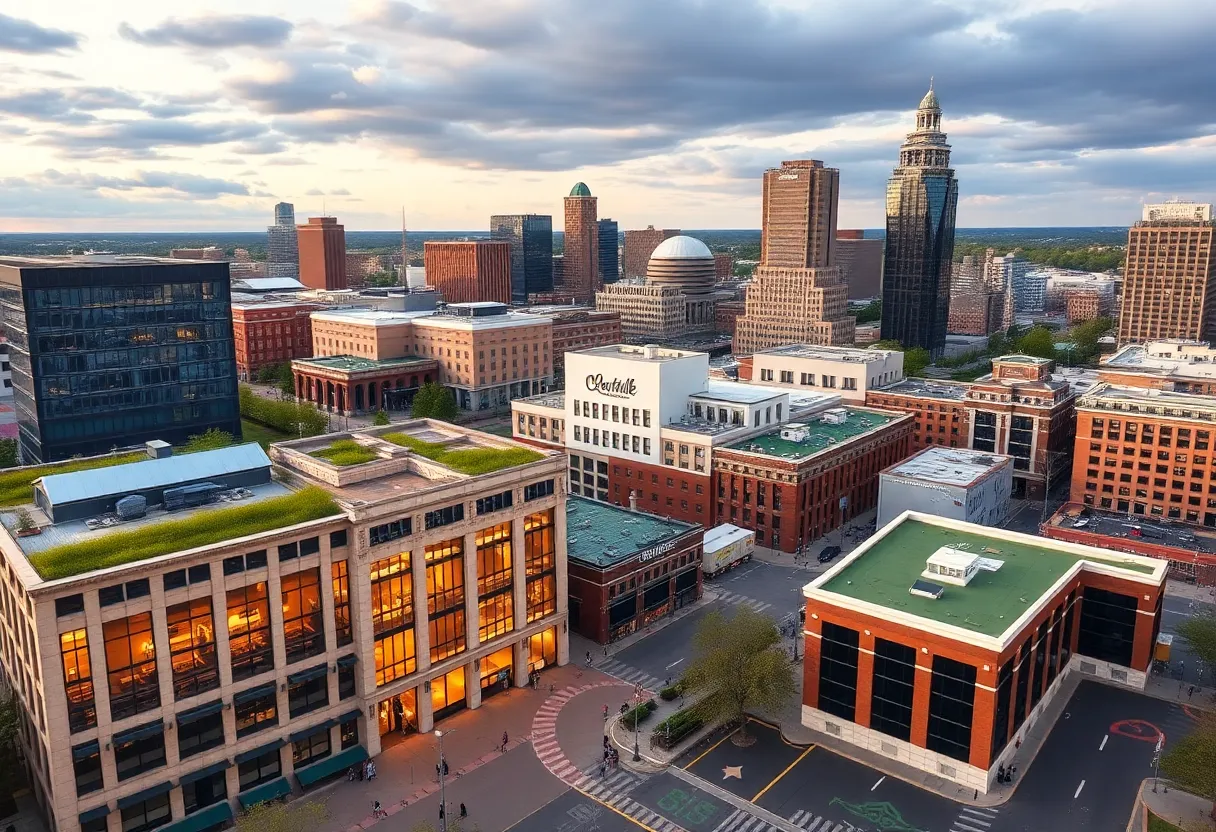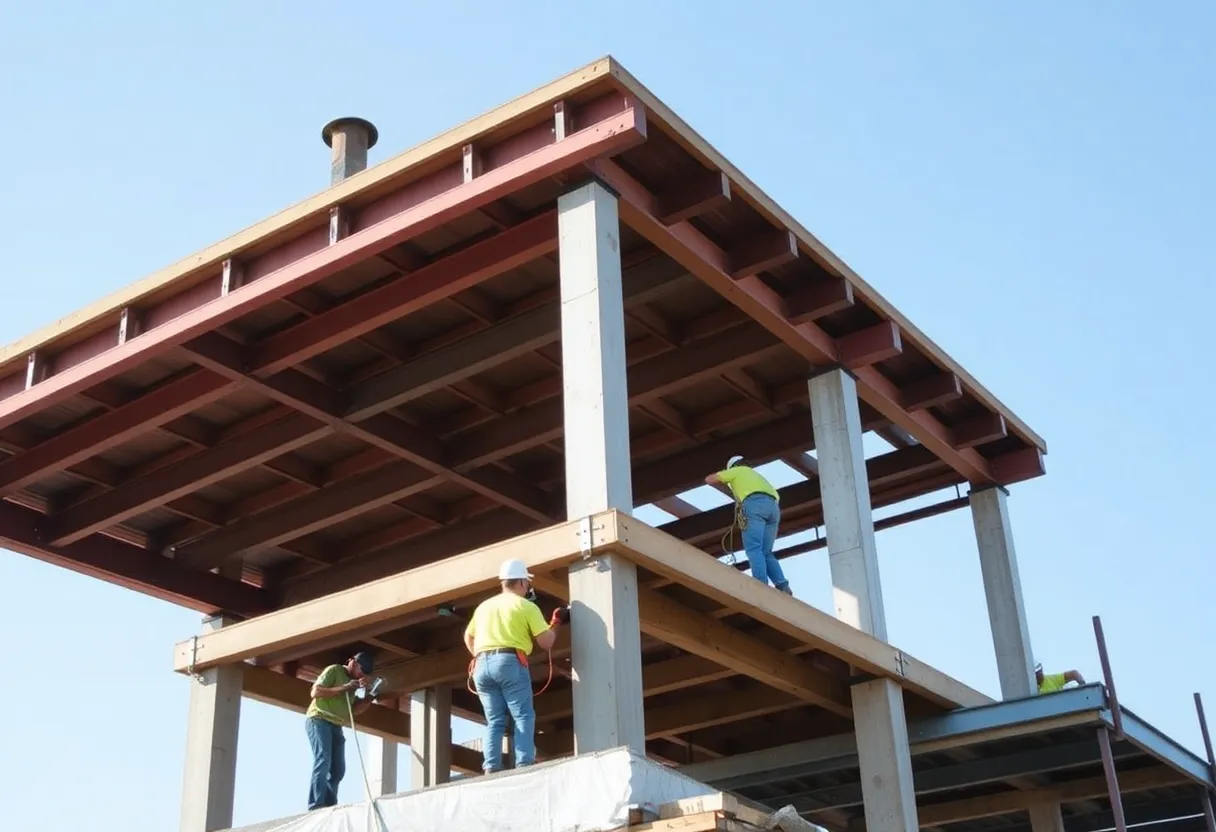Chicago metro, September 2, 2025
News Summary
New apartment starts across the Chicago metro plunged sharply as rising construction and insurance costs, higher labor expenses and tighter lending undercut the post-pandemic building boom. The region saw a steep year-over-year decline that pushed it down national rankings and shifted growth toward other metros. Roughly a third of the limited new units remain inside the city, while large projects pivoted from condos to rentals and small infill permits continue in neighborhoods. Local policy changes removing parking minimums near transit aim to reduce costs and encourage denser development, even as builders prioritize amenities tied to mobility and wellness.
Chicago area apartment building plunges in 2025 as local projects and rules reshape development
Lead: New apartment starts across the Chicago metro dropped sharply in 2025, plunging by around 60.4% from the prior year to roughly 3,756 units. The decline leaves the region well below its recent peak of activity and shifts the balance of housing additions toward other U.S. metros.
What happened and why it matters
Data compiled from a national rental market analysis based on a real estate software platform show the Chicago metro experienced the steepest annual fall in new apartment construction among U.S. metros in 2025. About 36% of the new units expected this year are inside the City of Chicago, with the remainder in suburbs and smaller communities.
The pullback is tied to a mix of higher construction costs, increased labor expenses, rising insurance bills, tighter lending standards and a cooling of the post-pandemic building boom. Many projects set to open in 2025 were permitted in 2021–2022; far fewer projects broke ground in 2023–2024. As a result, Chicago slipped in national rankings and now sits outside the top 30 new rental markets, near the low 30s nationally and fifth in the Midwest behind several growing regional metros.
Regional and national context
The Midwest is expected to deliver about 12% of the roughly half a million new apartment units projected nationwide for 2025. Southern metros dominate the growth picture, claiming more than half of new apartment starts, with a few Texas markets and several Southeast cities accounting for large shares. The New York metro remains the single largest new-rental market for the fourth straight year, with roughly 30,000 units scheduled to open in 2025.
Local examples that illustrate pressure on development
One recent high-profile tower in the central city completed a major shift during development and opened to renters in spring 2025 as a luxury rental tower after an early plan to sell condos lost momentum during the pandemic. The 73-story building rises about 805 feet and delivers roughly 738 rental units with a wide price range and a full lease-up reported by project leaders. The change from condos to rentals was driven by market demand and financial gaps that emerged during the pandemic, and the project used a mix of lenders and an unusual equity structure to close funding gaps. The tower also received recognition from local real estate professionals for multifamily development work in 2025 and includes features aimed at sustainability, mobility and wellness.
At the neighborhood scale, a small permitted project in Noble Square shows how infill continues despite the slowdown. A vacant lot on the 1300 block of West Chicago Avenue received a permit late in August 2025 for a four-story, five-unit building with one ground-floor retail space. The approved plan includes two covered parking spaces accessed from an alley, five indoor bicycle spaces, a reduced rear setback, and a construction cost estimate of about $1.2 million. The site has ready transit links via local bus lines and a Blue Line station a few blocks away.
Policy changes affecting development
The city removed minimum parking requirements for developments close to public transit in July 2025. The rule change eliminates parking minimums for projects within a half mile of rail service or within a quarter mile of a bus line. The measure is part of a local effort to clear zoning rules seen as barriers to new housing. The change is expected to lower the cost and land needs for some projects near transit, though zoning debates remain contentious at neighborhood meetings and ward-level reviews.
What renters want and what builders are offering
Survey data tied to the rental market analysis show renters still put a high value on reserved or covered parking and on fitness centers. Other popular amenities include coworking and shared spaces, club rooms, spa-like features and rooftop pools. Developers are responding with amenities around mobility and wellness, including bike storage and electric vehicle charging in newer buildings.
Smaller markets follow a similar pattern
Other Midwestern metros also posted sharp slowdowns. For instance, a college town that added many apartments in recent years is forecast to see new construction fall by nearly 60% in 2025, leaving roughly 1,664 new units. The slowdown in smaller metros reflects many of the same cost and financing pressures facing developers nationwide.
Bottom line
The Chicago region’s steep drop in apartment starts underscores how quickly construction activity can shift when costs rise and financing tightens. Small-scale infill projects and large towers that pivoted to rentals show that development continues, but at a slower and more selective pace. Policy changes like the removal of transit-area parking minimums may encourage denser projects near transit and shift how future buildings are planned.
Frequently asked questions
How much did apartment construction drop in the Chicago metro in 2025?
Apartment starts fell by about 60.4% year over year, to roughly 3,756 new units for 2025.
How many of those units are in the City of Chicago?
About 36% of the expected new units for 2025 are in the City of Chicago; the rest are in suburbs and surrounding municipalities.
What are the main reasons for the slowdown?
Higher costs for labor and materials, rising insurance premiums, tighter lending standards and the easing of a post-pandemic building boom are the main drivers.
Are any big projects still opening in Chicago?
Yes. A large tower converted from condos to rentals opened to renters in spring 2025 with around 738 units, and smaller infill projects continue to move forward with local permits.
Did any zoning changes affect future development?
Yes. The city removed parking minimums near transit in mid-2025, which may lower development costs and encourage denser housing near public transit.
Key features at a glance
| Topic | Detail |
|---|---|
| Chicago 2025 apartment starts | Approx. 3,756 units; down about 60.4% from 2024 |
| City share | About 36% of 2025 starts are in City of Chicago |
| Main causes for slowdown | Higher labor/material costs, insurance, tighter lending, cooling post-pandemic boom |
| Local policy change | Parking minimums removed near transit (mid-2025) |
| Notable project | Large downtown tower opened as rentals in 2025 with ~738 units after a condo-to-rental pivot |
| Typical renter priorities | Covered parking, fitness centers, coworking, shared amenities |
| Small-scale example | Four-story, five-unit Noble Square infill with ground-floor retail and bike parking; permit issued Aug 28, 2025 |
Deeper Dive: News & Info About This Topic
Additional Resources
- Chicago YIMBY: Five residential units, one commercial unit permitted at 1361 West Chicago Avenue
- Wikipedia: 1361 West Chicago Avenue
- Bloomberg: Chicago zoning reform targets parking rules to boost housing
- Google Search: Chicago zoning reform parking minimums 2025
- CoStar: Apartment tower clears obstacles to 73-story tower over Grant Park
- Google Scholar: Grant Park apartment tower 73 stories 2025
- Bisnow: The convoluted start-stop process that birthed $1000M Chicago apartment tower
- Encyclopedia Britannica: 1000M Chicago apartment tower
- WTTW: Developer moves forward on Lincoln Park apartment complex
- Google News: Lincoln Park apartment complex developer 2025
Author: Construction FL News
The FLORIDA STAFF WRITER represents the experienced team at constructionflnews.com, your go-to source for actionable local news and information in Florida and beyond. Specializing in "news you can use," we cover essential topics like product reviews for personal and business needs, local business directories, politics, real estate trends, neighborhood insights, and state news affecting the area—with deep expertise drawn from years of dedicated reporting and strong community input, including local press releases and business updates. We deliver top reporting on high-value events such as the Florida Build Expo, major infrastructure projects, and advancements in construction technology showcases. Our coverage extends to key organizations like the Associated Builders and Contractors of Florida and the Florida Home Builders Association, plus leading businesses in construction and legal services that power the local economy such as CMiC Global and Shutts & Bowen LLP. As part of the broader network, including constructioncanews.com, constructionnynews.com, and constructiontxnews.com, we provide comprehensive, credible insights into the dynamic construction landscape across multiple states.





